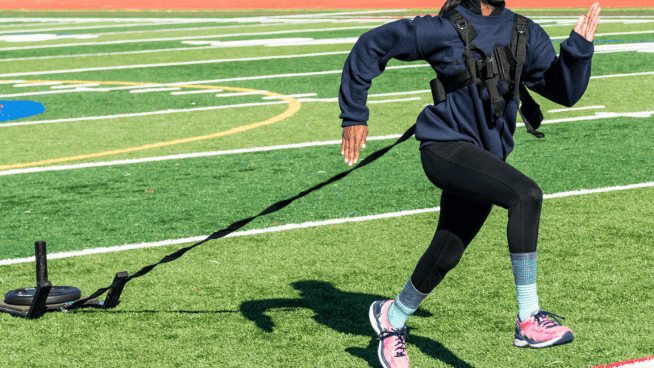“Stress is a scientific concept which has suffered the mixed blessing of being too well known and too little understood.” – Hans Selye.
Stress is an aspect of life that everyone deals with. It impacts global and local economies; billions of dollars are lost due to sick days and less-than-productive employees. Public health, directly linked to coronary heart disease, is the top killer in the U.S. Interpersonal relationships cause more stress due to the creation of conflict and ineffective methods of solving conflict. “Stress is in every part of our lives, and it’s a normal process,” says Larry Lauer, a mental skills specialist at the USTA. “Stress is there to challenge them; it’s a signal from the brain that this matters to you and that you want to perform well.”
This article is a preliminary examination of stress and its impact on you, regardless of your occupation. This is the first in a series of articles on effectively learning to manage and master the stress we experience in our lives and how to teach others to manage it effectively. In this article, six key action components are detailed that directly relate to how stress is allowed to get the worst of us and how best to learn to manage these critical variables. Reflect on each and set daily intentions on improving any areas you deem as a liability. “High performers are in extraordinary situations, but often they are ordinary people, and that transition does certain things,” says Forensic psychiatrist Ceri Evans of Arsenal & New Zealand All Blacks.
The ABC’s Of Managing Daily Stress
A) Awareness:
To be more aware means a consciousness, a knowing, perceiving, and feeling what is happening internally and externally, such as being more aware of your surroundings and your place in it. Awareness of what stresses us out and how we usually attempt to cope with it becomes the most valuable tool in managing said stress.
Tips: Reflecting on your daily hassles, usual sources of stress and your most and least effective ways of coping are good starting points. Plus, knowing how stress negatively impacts the mind, body, and spirit. Moreover, how your stress reactions affect others, like staff, players, administration, and friends/family, is an important exploration.
Appraisal – The “power of appraisal” cannot be emphasized enough. How one appraises or perceives a stressor can be a “game-changer.” Appraising potential stressors as challenges instead of threats can set you on a productive path. Despite some butterflies that remain, they will at least be heading in the same direction. Appraising situations as threatening (seldom physical threats-mostly threats to ego) will set you on a course full of anxieties, doubts, muscle tension, and poor performance. Having to bring bad news to your administrator or deal with the media is part of the job. Embracing the challenge will help you deal more effectively with the process. It’s almost that simple: choose a challenge instead of a threat.
Tips: The appraisal process consists of the 4 R’s.
Reframing the situation to improve your perspective. Ex: “If I have to be up for a 6 am training, I might as well make the most of it”.
Refocusing your efforts and motivations on not just going through the motions, but thriving to get something out of it. Such as a goal of improving my covering positions on defense or my set-piece strikes from outside the box.
Restructuring any complaining thoughts or self-talk statements. Ex: “Why do we have to practice at 6 am anyway – it’s ridiculous”.
Reflect and journal on life situations experienced and the accompanying appraisals. Which were adaptive and which were debilitating?
B) Barriers/Behaviors
There is no limit to the barriers we use to stay in our comfort zones. What are your biggest barriers? How you limit yourself can impact your ability to adaptively cope with stress such as self-defeating thoughts, unhealthy routines, and depressing feelings.
Tips: List the barriers you use to stay in your personal, social, intellectual, or performance comfort zone. Then also, list how these may be holding you back personally or professionally. Write down what hinders that result from the use of these barriers and how best to proceed past them.
Breaths – Based on stress psychophysiology, we have more control than we think we do over our appraisals, behaviors, and cognitions. With a simple deep breath, we use our diaphragm and prompt the parasympathetic nervous system designed to conserve energy and slow down our system (slows breathing, releases tension, and quiets the mind).
Tips: Anytime you find yourself getting ahead of yourself mentally, physically, or emotionally, take a relaxing, full breath. Anytime you are in a potentially stressful situation that you appraise as a threat, take a breath or two. Giving yourself more control over your reactions is an excellent place to start.
C: Cognitions/Control
Cognitions refer to our thoughts and self-talk dialogue we have with ourselves, all day, every day. The more in control we are with these, the more productive they can be for us. There is a powerful connection between the mind and body. Maximizing this strength should be a priority.
Tips: Reflect on these questions: How much control do you have over your inner dialogue? Is the majority of these productive? How much control do you believe you have with the events that occur in your life? What needs changing?
Confidence – Inner belief of our skills and talents is a critical component of a stress-resilient personality set. Maximizing our confidence sources, such as prior accomplishments, preparation, training, leadership, team culture, and productive feedback can help us maintain an optimal level of confidence.
Tips: Reflect on where your confidence comes from, how consistently optimal it is, and how this is managed and maintained. If it is not optimally confident daily, then what needs to be changed? Reflect on your best leadership moments and give yourself credit for your accomplishments and contributions daily.
RECOMMENDED FOR YOU
MOST POPULAR
“Stress is a scientific concept which has suffered the mixed blessing of being too well known and too little understood.” – Hans Selye.
Stress is an aspect of life that everyone deals with. It impacts global and local economies; billions of dollars are lost due to sick days and less-than-productive employees. Public health, directly linked to coronary heart disease, is the top killer in the U.S. Interpersonal relationships cause more stress due to the creation of conflict and ineffective methods of solving conflict. “Stress is in every part of our lives, and it’s a normal process,” says Larry Lauer, a mental skills specialist at the USTA. “Stress is there to challenge them; it’s a signal from the brain that this matters to you and that you want to perform well.”
This article is a preliminary examination of stress and its impact on you, regardless of your occupation. This is the first in a series of articles on effectively learning to manage and master the stress we experience in our lives and how to teach others to manage it effectively. In this article, six key action components are detailed that directly relate to how stress is allowed to get the worst of us and how best to learn to manage these critical variables. Reflect on each and set daily intentions on improving any areas you deem as a liability. “High performers are in extraordinary situations, but often they are ordinary people, and that transition does certain things,” says Forensic psychiatrist Ceri Evans of Arsenal & New Zealand All Blacks.
The ABC’s Of Managing Daily Stress
A) Awareness:
To be more aware means a consciousness, a knowing, perceiving, and feeling what is happening internally and externally, such as being more aware of your surroundings and your place in it. Awareness of what stresses us out and how we usually attempt to cope with it becomes the most valuable tool in managing said stress.
Tips: Reflecting on your daily hassles, usual sources of stress and your most and least effective ways of coping are good starting points. Plus, knowing how stress negatively impacts the mind, body, and spirit. Moreover, how your stress reactions affect others, like staff, players, administration, and friends/family, is an important exploration.
Appraisal – The “power of appraisal” cannot be emphasized enough. How one appraises or perceives a stressor can be a “game-changer.” Appraising potential stressors as challenges instead of threats can set you on a productive path. Despite some butterflies that remain, they will at least be heading in the same direction. Appraising situations as threatening (seldom physical threats-mostly threats to ego) will set you on a course full of anxieties, doubts, muscle tension, and poor performance. Having to bring bad news to your administrator or deal with the media is part of the job. Embracing the challenge will help you deal more effectively with the process. It’s almost that simple: choose a challenge instead of a threat.
Tips: The appraisal process consists of the 4 R’s.
Reframing the situation to improve your perspective. Ex: “If I have to be up for a 6 am training, I might as well make the most of it”.
Refocusing your efforts and motivations on not just going through the motions, but thriving to get something out of it. Such as a goal of improving my covering positions on defense or my set-piece strikes from outside the box.
Restructuring any complaining thoughts or self-talk statements. Ex: “Why do we have to practice at 6 am anyway – it’s ridiculous”.
Reflect and journal on life situations experienced and the accompanying appraisals. Which were adaptive and which were debilitating?
B) Barriers/Behaviors
There is no limit to the barriers we use to stay in our comfort zones. What are your biggest barriers? How you limit yourself can impact your ability to adaptively cope with stress such as self-defeating thoughts, unhealthy routines, and depressing feelings.
Tips: List the barriers you use to stay in your personal, social, intellectual, or performance comfort zone. Then also, list how these may be holding you back personally or professionally. Write down what hinders that result from the use of these barriers and how best to proceed past them.
Breaths – Based on stress psychophysiology, we have more control than we think we do over our appraisals, behaviors, and cognitions. With a simple deep breath, we use our diaphragm and prompt the parasympathetic nervous system designed to conserve energy and slow down our system (slows breathing, releases tension, and quiets the mind).
Tips: Anytime you find yourself getting ahead of yourself mentally, physically, or emotionally, take a relaxing, full breath. Anytime you are in a potentially stressful situation that you appraise as a threat, take a breath or two. Giving yourself more control over your reactions is an excellent place to start.
C: Cognitions/Control
Cognitions refer to our thoughts and self-talk dialogue we have with ourselves, all day, every day. The more in control we are with these, the more productive they can be for us. There is a powerful connection between the mind and body. Maximizing this strength should be a priority.
Tips: Reflect on these questions: How much control do you have over your inner dialogue? Is the majority of these productive? How much control do you believe you have with the events that occur in your life? What needs changing?
Confidence – Inner belief of our skills and talents is a critical component of a stress-resilient personality set. Maximizing our confidence sources, such as prior accomplishments, preparation, training, leadership, team culture, and productive feedback can help us maintain an optimal level of confidence.
Tips: Reflect on where your confidence comes from, how consistently optimal it is, and how this is managed and maintained. If it is not optimally confident daily, then what needs to be changed? Reflect on your best leadership moments and give yourself credit for your accomplishments and contributions daily.










